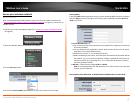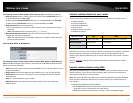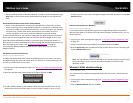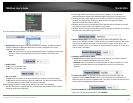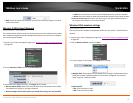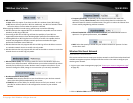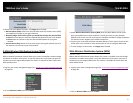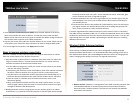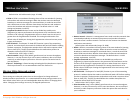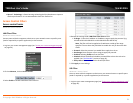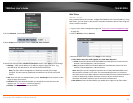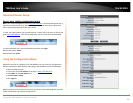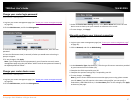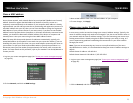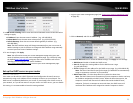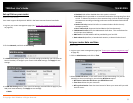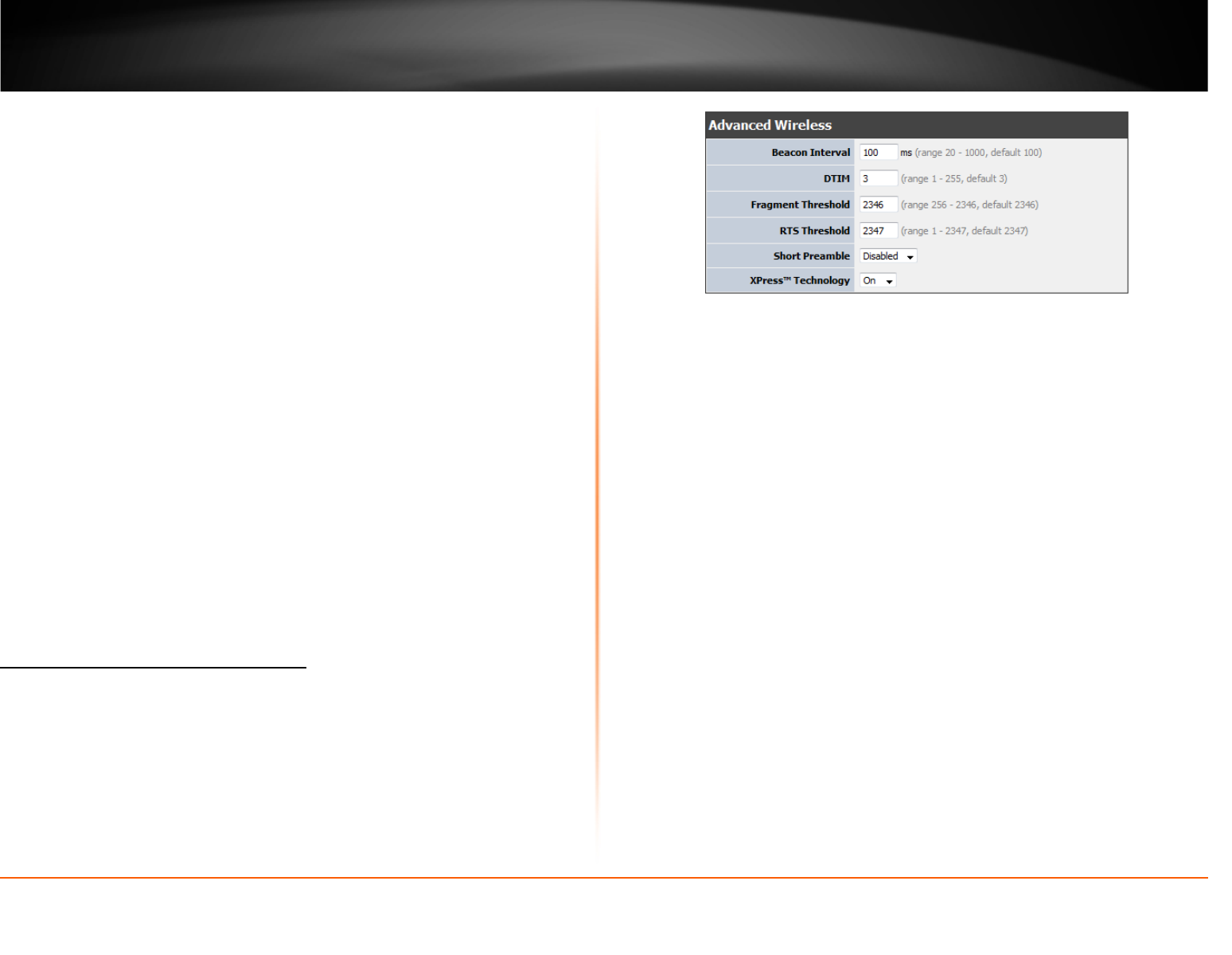
© Copyright 2013 TRENDnet. All Rights Reserved.
TRENDnet User’s Guide
TEW-812DRU
23
Default Value: 100 milliseconds (range: 25-1000)
• DTIM: A DTIM is a countdown informing clients of the next window for listening
to broadcast and multicast messages. When the wireless router has buffered
broadcast or multicast messages for associated clients, it sends the next DTIM
with a DTIM Interval value. Wireless clients detect the beacons and awaken to
receive the broadcast and multicast messages. The default value is 1. Valid
settings are between 1 and 255.
• Fragment Threshold: Wireless frames can be divided into smaller units
(fragments) to improve performance in the presence of RF interference and at
the limits of RF coverage. Fragmentation will occur when frame size in bytes is
greater than the Fragmentation Threshold. This setting should remain at its
default value of 2346 bytes. Setting the Fragmentation value too low may result
in poor performance.
• RTS Threshold – The Request To Send (RTS) function is part of the networking
protocol. A wireless device that needs to send data will send a RTS before sending
the data in question. The destination wireless device will send a response called
Clear to Send (CTS). The RTS Threshold defines the smallest data packet size
allowed to initiate the RTS/CTS function.
Default Value: 2347 (range: 1-2347)
• Short Preamble: Using a short (400ns) guard interval can increase throughput.
However, it can also increase error rate in some installations, due to increased
sensitivity to radio-frequency reflections. Select the option that works best for
your installation.
• Xpress™ Technology: Is frame bursting technology built by Broadcom to improve
wireless performance. It is recommended to leave this feature On.
Wireless 5GHz Advanced settings
Wireless > Advanced
These settings are advanced options that can be configured to change advanced
wireless broadcast specifications. It is recommended that these settings remain set to
their default values unless you are knowledgeable about the effects of changing these
values. Changing these settings incorrectly can degrade performance.
• Beacon Interval: A beacon is a management frame used in wireless networks that
transmitted periodically to announce the presence and provide information
about the router’s wireless network. The interval is the amount time between
each beacon transmission.
Default Value: 100 milliseconds (range: 25-1000)
• DTIM: A DTIM is a countdown informing clients of the next window for listening
to broadcast and multicast messages. When the wireless router has buffered
broadcast or multicast messages for associated clients, it sends the next DTIM
with a DTIM Interval value. Wireless clients detect the beacons and awaken to
receive the broadcast and multicast messages. The default value is 1. Valid
settings are between 1 and 255.
• Fragment Threshold: Wireless frames can be divided into smaller units
(fragments) to improve performance in the presence of RF interference and at
the limits of RF coverage. Fragmentation will occur when frame size in bytes is
greater than the Fragmentation Threshold. This setting should remain at its
default value of 2346 bytes. Setting the Fragmentation value too low may result
in poor performance.
• RTS Threshold – The Request To Send (RTS) function is part of the networking
protocol. A wireless device that needs to send data will send a RTS before sending
the data in question. The destination wireless device will send a response called
Clear to Send (CTS). The RTS Threshold defines the smallest data packet size
allowed to initiate the RTS/CTS function.
• Default Value: 2347 (range: 1-2347)
• Short Preamble: Using a short (400ns) guard interval can increase throughput.
However, it can also increase error rate in some installations, due to increased
sensitivity to radio-frequency reflections. Select the option that works best for
your installation.



